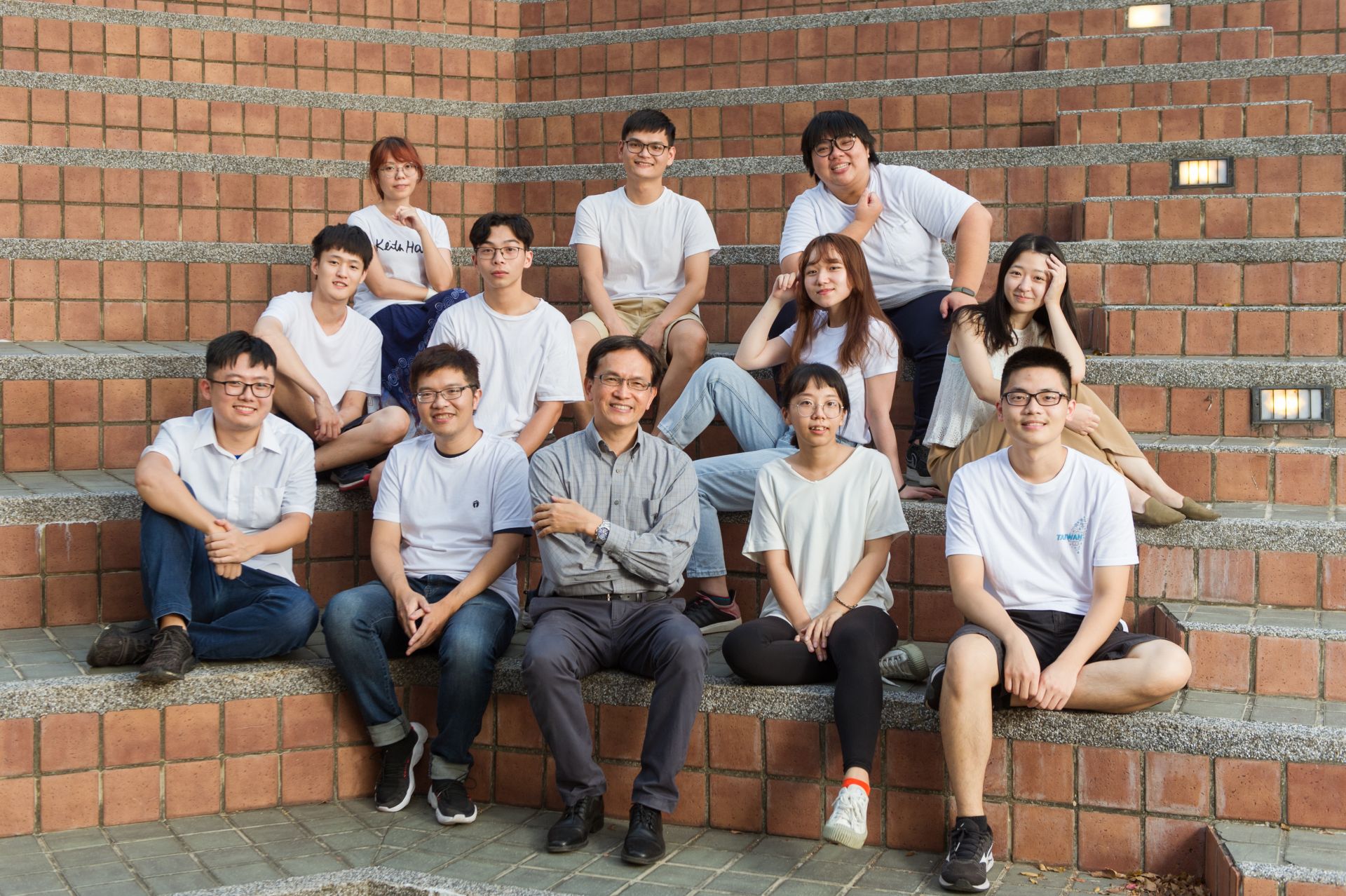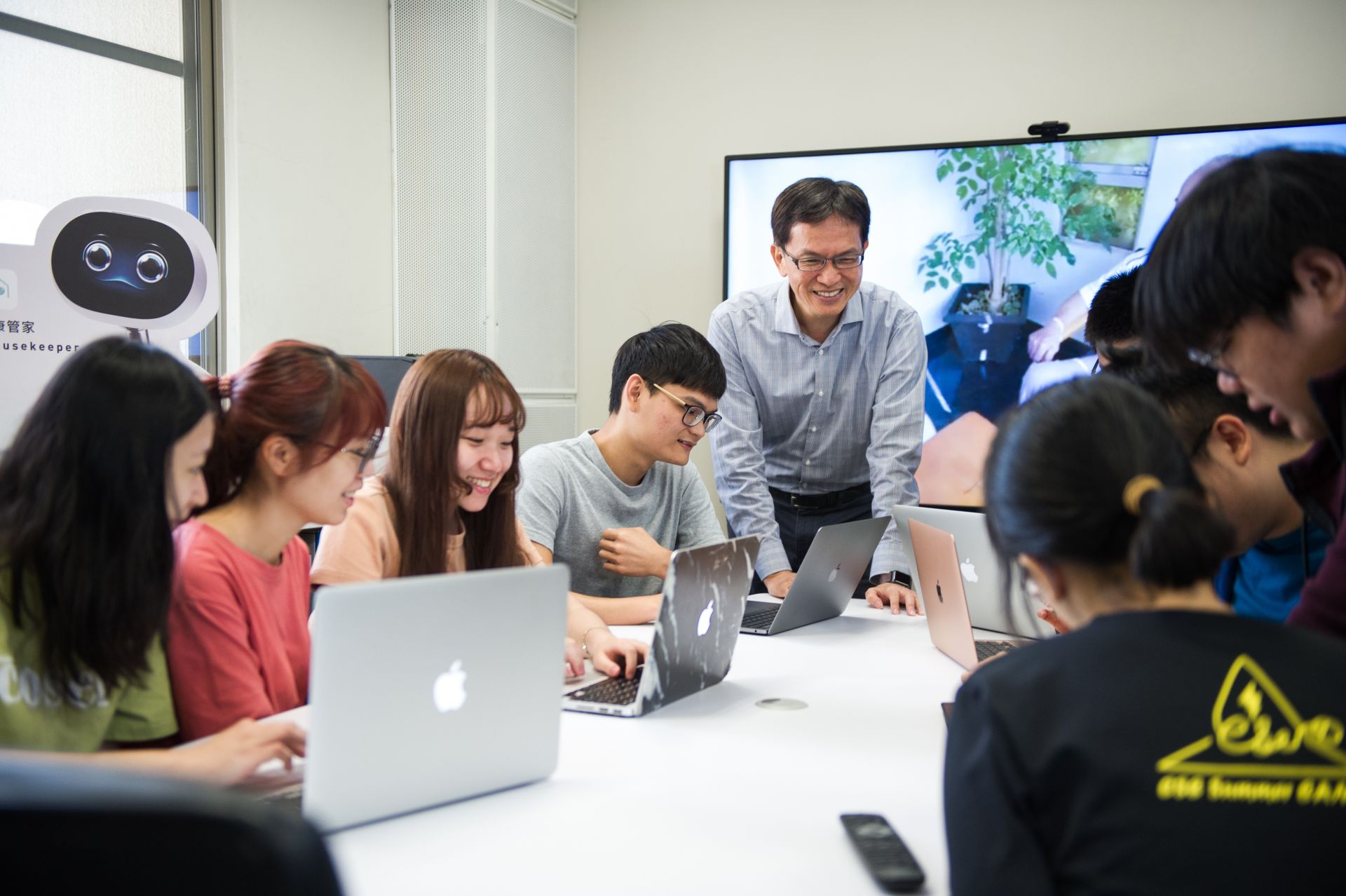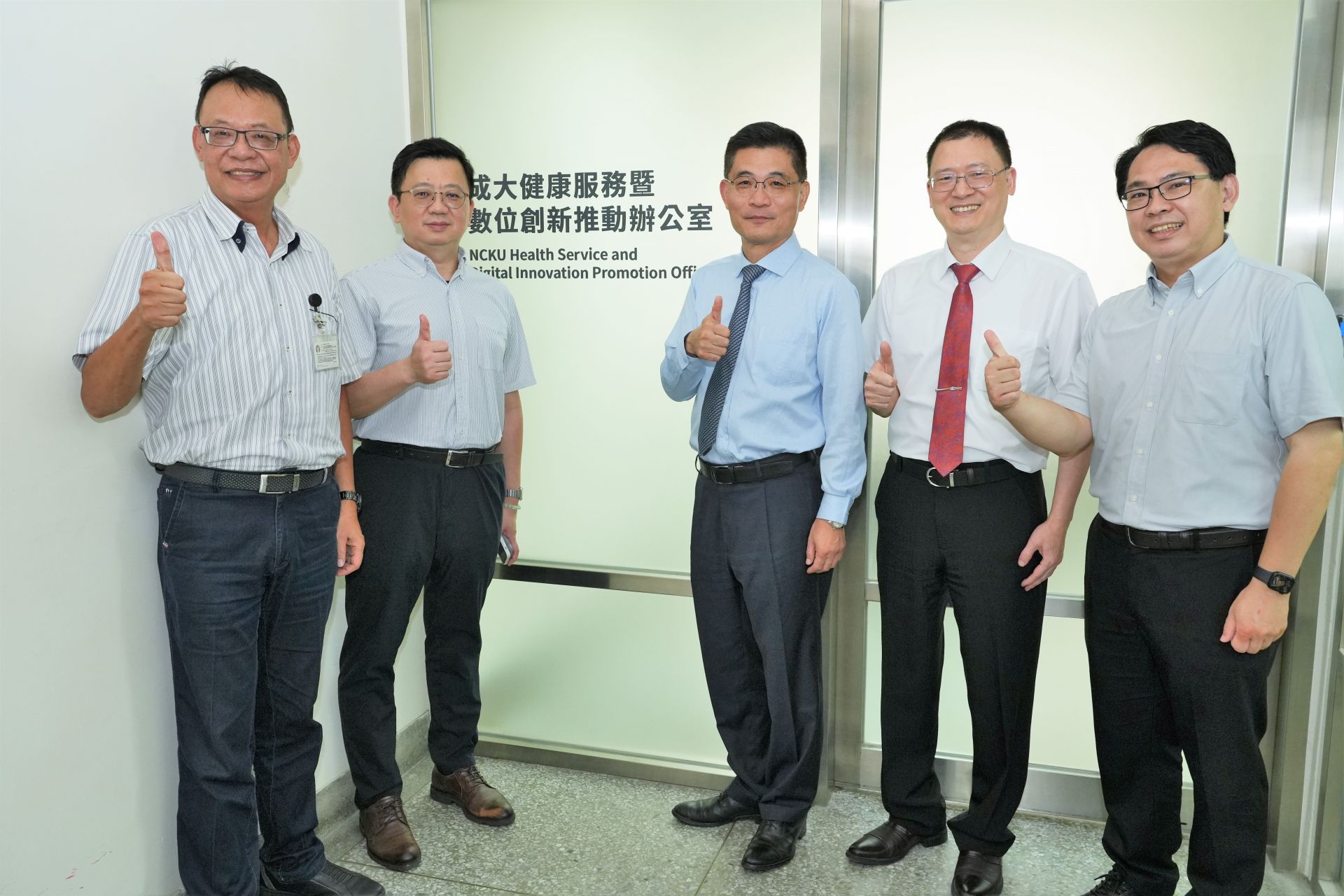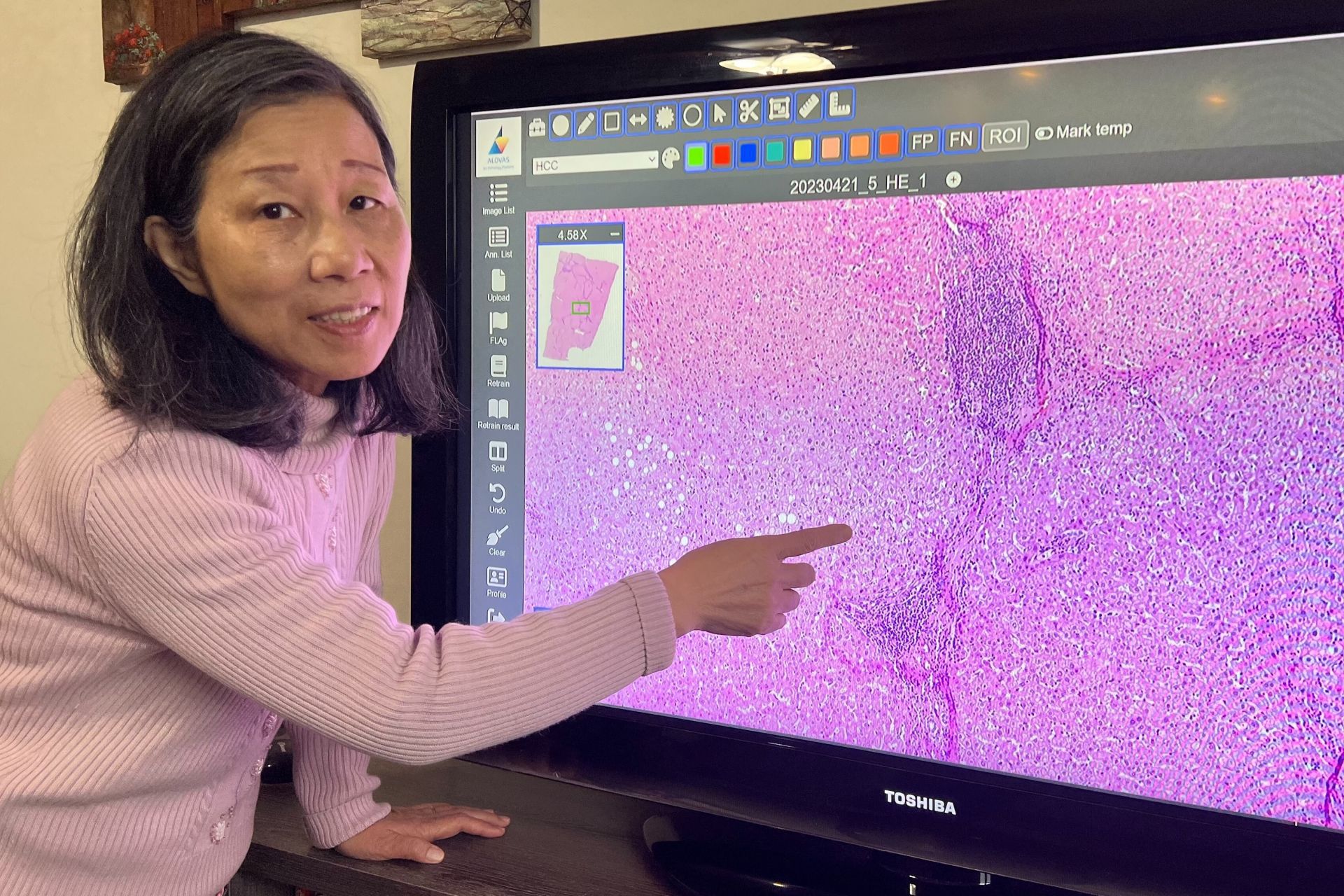SDG3
NCKU and Harvard Collaborate and Use AI to Read and Predict Colorectal Cancer and is Featured in International Journal
The incidence of colorectal cancer in Taiwan is the highest in the world, and the mortality rate is the second highest among all cancers in Taiwan. In fact, early detection and treatment of colorectal cancer has a good cure rate. After more than 2 years of collaboration with the medical team of Harvard University, the team led by Prof. Jung-Hsien Chiang (Scopus) at NCKU has successfully developed an AI algorithm to detect and predict colorectal cancer, including prediction of key genetic aberrations, genetic expression, and survival, as well as identification of clear correlation with pathological sections. The research results were published in the international journal Nature Communications in April 2023 ( Full content ).
Professor Chiang said that artificial intelligence to assist in medical treatment is one of the research phenomena today, but so far not many models have been able to build a complete AI interpretation and prediction for specific diseases. The model established by NCKU and Harvard is dominated by Westerners as the patient data. The team of NCKU has planned to conduct localized research with Taiwanese people and collaborated with domestic medical centers (e.g NCKU Hospital) to implement this colorectal cancer prediction system.
Professor Chiang pointed out that this cross-country study is expected to open up the vanguard of digital transformation of hospitals, and if it can be used in actual medical treatment, it will significantly improve the accuracy and speed of diagnosis by pathologists, and can effectively solve the problem of shortage of pathologists or not accumulating enough experience, as well as help physicians to design a more personalized medical plan for patients, and monitor the condition and progress during treatment to ensure the success rate of treatment.
In this cross-country study, the information required for the AI algorithm, such as pathological sections of colorectal cancer patients, genetic expression profiles, patient treatment and survival tracking, all came from the United States. Prof. Chiang revealed that one of the keys to AI algorithms is to have huge data, and the richness of the data in this collaboration can only be described as massive, spanning a timeline of 1 to 20 years and even 28 years of patient tracking data.
The information team at NCKU has contributed their "Golden Brain". There are 6 members in the team, besides Prof. Chiang, the other 5 are all his students. During the two to three years of research, the team members encountered many challenges, such as the need to supplement the lack of professional knowledge in cancer, the period of encountering bottlenecks in the design of algorithms, and even the blackout of computer calculation day and night. Fortunately, the team did not give up and persevered, and was able to obtain good results.
Professor Chiang said that he was a co-corresponding author of the research results in the journal Nature Communications, and the first five authors were all his students, which shows the power of research in the field of information technology at NCKU.
More Information
Chiang, Junghsien
https://www.scopus.com/authid/detail.uri?authorId=7201425280
Histopathology images predict multi-omics aberrations and prognoses in colorectal cancer patients
Tsai, P.-C., Lee, T.-H., Kuo, K.-C., ...Ogino, S., Yu, K.-H., Nature Communications, 2023, 14(1), 2102
Professor Chiang said that artificial intelligence to assist in medical treatment is one of the research phenomena today, but so far not many models have been able to build a complete AI interpretation and prediction for specific diseases. The model established by NCKU and Harvard is dominated by Westerners as the patient data. The team of NCKU has planned to conduct localized research with Taiwanese people and collaborated with domestic medical centers (e.g NCKU Hospital) to implement this colorectal cancer prediction system.
Professor Chiang pointed out that this cross-country study is expected to open up the vanguard of digital transformation of hospitals, and if it can be used in actual medical treatment, it will significantly improve the accuracy and speed of diagnosis by pathologists, and can effectively solve the problem of shortage of pathologists or not accumulating enough experience, as well as help physicians to design a more personalized medical plan for patients, and monitor the condition and progress during treatment to ensure the success rate of treatment.
In this cross-country study, the information required for the AI algorithm, such as pathological sections of colorectal cancer patients, genetic expression profiles, patient treatment and survival tracking, all came from the United States. Prof. Chiang revealed that one of the keys to AI algorithms is to have huge data, and the richness of the data in this collaboration can only be described as massive, spanning a timeline of 1 to 20 years and even 28 years of patient tracking data.
The information team at NCKU has contributed their "Golden Brain". There are 6 members in the team, besides Prof. Chiang, the other 5 are all his students. During the two to three years of research, the team members encountered many challenges, such as the need to supplement the lack of professional knowledge in cancer, the period of encountering bottlenecks in the design of algorithms, and even the blackout of computer calculation day and night. Fortunately, the team did not give up and persevered, and was able to obtain good results.
Professor Chiang said that he was a co-corresponding author of the research results in the journal Nature Communications, and the first five authors were all his students, which shows the power of research in the field of information technology at NCKU.
More Information
Chiang, Junghsien
https://www.scopus.com/authid/detail.uri?authorId=7201425280
Histopathology images predict multi-omics aberrations and prognoses in colorectal cancer patients
Tsai, P.-C., Lee, T.-H., Kuo, K.-C., ...Ogino, S., Yu, K.-H., Nature Communications, 2023, 14(1), 2102

Prof. Jung-Hsien Chiang (center, first row) and the information team

Team of NCKU and Harvard having online meeting

SDG3NCKU Launches Digital Sustainability Innovation Hub to Establish a Global Model for Smart Health Services in the Future.
View more
SDG3NCKU and NCYU Research Team Uncovers How Nanoplastics Disrupt Gut Microbiota – Featured in Nature Communications
View more



















